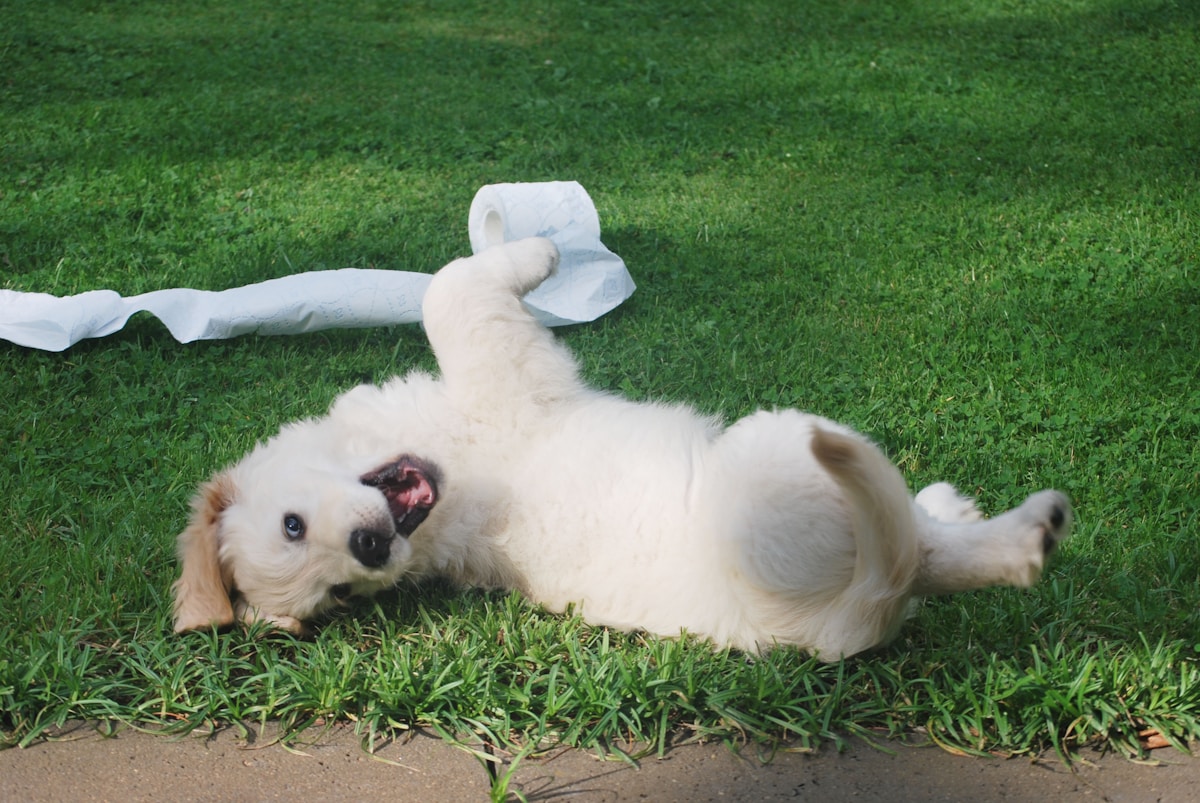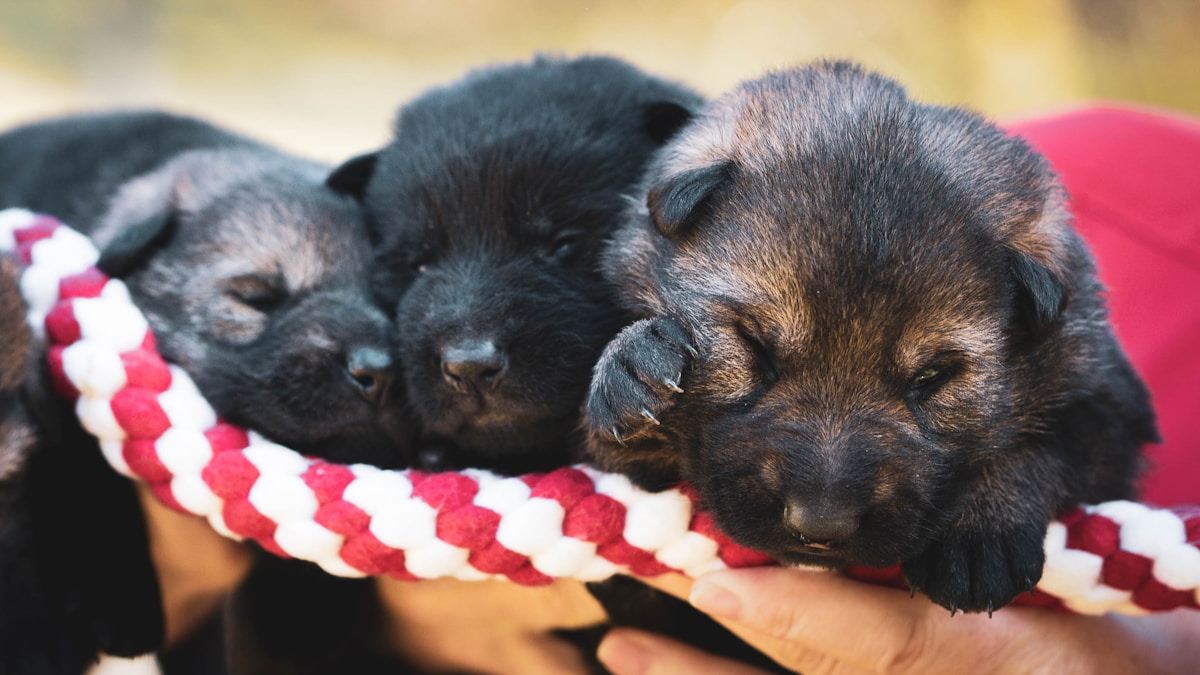Making the decision to welcome a new four-legged member of the family should make you feel excited, but it may make you feel a little nervous too. We’ve put together some tips to help those first few months run smoothly.
Just like people, dogs are individuals. Their different personality traits vary between breeds and ages, and are built on their varying different past experiences. Some dogs (even puppies), for example, may have had negative past experiences and need time and patience to adjust and trust their new family.
New Dog Checklist:
When welcoming your new dog, of any age, we recommend you consider purchasing the following:
- Food and water bowls
- Dog or puppy food
- Treats for training
- Collar/harness and lead
- ID tag with your details +/- vet details
- Age-appropriate dog toys
- Dog bed
- Dog crate
New Dog Owner Checklist:
As a new dog owner, you’ll also need to have:
- Vet’s contact number
- Basic first aid kit
- Grooming kit (nail clippers/brush/suitable shampoo)
- Pet health insurance
- Don’t forget to update your dog’s microchip details.

Adjustment period: 3 day, 3 week, 3 month rule
It is tempting when your new dog arrives to want to be with them all the time (particularly children), but allow them to have space and try not to overwhelm them.
Time taken for dogs of any age to settle into a new home varies greatly. Some may be confident and appear to settle straight in, others will take much longer and need more support. It’s helpful to remember the ‘rule of 3’ when welcoming your new arrival and understanding how they may feel and what to expect.
First 3 Days
Dogs may:
- be overwhelmed or scared by new things;
- have a reduced appetite;
- hide or be quiet;
- ‘act up’ or test the boundaries;
- miss their littermates/previous home.
First 3 Weeks
Dogs start to:
- realise this is their new home;
- settle into a routine;
- show personality;
- In some cases start to show the beginnings of some behavioural issues.
First 3 Months
They should:
- settle into their routine;
- feel safe and comfortable in their home;
- build trust and a bond with their family.
Training Your New Dog
Even adult rescue dogs need training with a new owner and a new home. With any training always use positive rewards such as praise, treats or a favourite toy.
Crate training
A crate is not a cage; it is your dog’s bedroom, den or safe place. It must never be used to punish them. Crate training can help dogs to feel secure, keep them safe from household dangers and support potty training. There are some main points to know:
Stages of crate training:
- Introduce the crate – never force your dog in it. Use treat/toys to make it positive.
- Feed in the crate - use this for mealtimes, close the door during meals.
- Increase the time the door is closed – leave it closed for longer after meals.
Never allow children to follow a dog into its crate; instead allow the dog to have their own space if they need it.
Choose a crate that is an appropriate size for your dog - space for a comfy bed and a watering/feeding area. If you have a large dog this may not be possible, but they must have enough space to stand up and turn around. From experience the best water bowls for crates are slightly raised and attach to the bars, this stops spillages.
If your dog is crying at night in their crate follow this checklist:
- Toilet – do they need to go?
- Distractions – are toys/treats nearby that they’re trying to get?
- Exercise – make sure they’ve been exercised (mentally/physically) so that they are ready for a good night’s sleep.
- Routine
If you have ticked the boxes above and are sure your dog is safe and comfortable then try your best not to enforce crying behaviour with attention.
Potty training
All puppies need training, and adult dogs may need reminding of their training. Dogs naturally prefer to toilet away from their living/sleeping area and should be allowed regular chances to do so. Failing to do this can cause bad habits, accidents in the house and even health issues like urine infections.
Top Potty Training Tips:
- Allow regular toilet trips (every 1-2hours for young puppies, apart from overnight).
- Praise for using the correct areas.
- NEVER scold your dog for an accident in the house, especially if not caught in the act.
- If you DO catch your dog toileting somewhere they shouldn’t then tell them a firm ‘No’ and move them to an appropriate place. Praise them when they do it there instead.

Diet
Dietary requirements differ between age, breed, sex and activity level. You should discuss the correct diet and calorie allowance for your dog with a vet.
Never change diet suddenly. If you are planning on changing your dog’s food when they move in with you then find out what they have been eating before and make the transition from the old diet to the new over at least 1 week. Even then, some dogs may develop tummy upsets.
Make sure everyone in the household knows which foods are toxic and cannot be fed – such as onions, chocolate, and raisins.
Exercise and Mental Stimulation
Dogs need regular exercise appropriate for their age and health. This includes opportunities to run, play, sniff, and explore their environment. Puppies shouldn’t exercise too much whilst growing, whilst older dogs or those with health issues may need to have adjusted exercise regimes. Some dogs have higher energy levels than others and may benefit from doing activities such as agility.
All dogs need mental stimulation; the amount varies between breed and individuals. There are many options such as interactive toys/games, walking in new places (sights and smells), chew toys, and training (at home or at classes). Meeting and socialising with other dogs is important for most dogs (there are some exceptions).
Dogs that are not mentally or physically stimulated are likely to develop behavioural problems and habits such as furniture chewing or anxiety/frustration behaviours.
Health
Register with a veterinary practice as soon as you can. You will need to visit here for your dog’s yearly booster vaccinations, parasite treatments and any other concerns that you may have. When choosing your practice check whether they also provide an emergency service. If they do not, then make sure you know where your nearest is. It's a good idea to have a ‘meet and greet’ appointment so your vet can check your new addition and go through diet, preventatives and exercise with you.

Vaccinations and preventatives
It is important to keep on top of your dog’s preventative healthcare because ‘prevention is always better than cure’.
You will need to remember the following:
- Yearly booster vaccinations (and/or titer testing if you prefer)
- Flea/tick/mite prevention (every 1-3months depending on product)
- Treatment for internal parasites (such as worms that can affect the guts, lungs, heart and other organs) every 1-3 months depending on age
- Grooming (coat/nail clips/ears) depending on breed and sometimes age of dog.
Your vet will be able to advise you on the appropriate flea, worm and vaccination schedule for your pet.
Pet Insurance
It is advisable to take out health insurance for your pet to cover against any unexpected costs should they become injured or ill. This can help protect you from financial upset in an already difficult time.
Conclusion
Enjoy welcoming your new arrival and remember the adjustment period can be a challenge, no matter what their age. Keep calm, consistent- and most of all be kind. It will be worth it and we wish you many happy years together.
